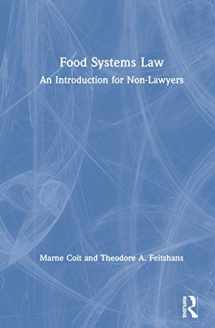
Food Systems Law: An Introduction for Non-Lawyers
Book details
Summary
Description
Food law is a rapidly developing area, with interest being driven at the consumer, handler and farm level. This introductory textbook provides an overview of the concepts necessary for an understanding of food law and regulations, providing the non-specialist reader with a more comprehensive understanding of food systems from production to consumption.
Food Systems Law first introduces the US legal system, and then moves on to explain the Federal Regulation of Food systems, the Food Safety Modernization Act (FSMA), and the Farm Bill, the single most important piece of legislation which impacts the way in which federal resources are used within the food industry. The following chapters provide concise explanations of key topics including food safety, food labeling, organic certification and food waste, with examples from US law and policy included. Importantly, the book also addresses key topics which overlap with food law, such as environmental, health and agricultural law.
This textbook is geared towards a non-legal audience, particularly students of interdisciplinary food studies and food science who are taking food law courses, as well as those studying agricultural law, food policy and environmental law. It will also be of interest to professionals working in the food industry and those who want to learn more about how food is regulated.


We would LOVE it if you could help us and other readers by reviewing the book
Book review



